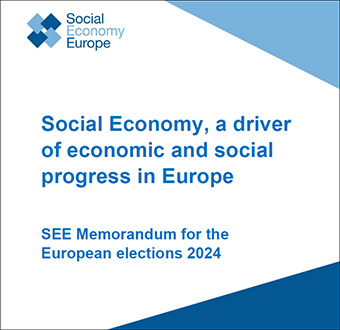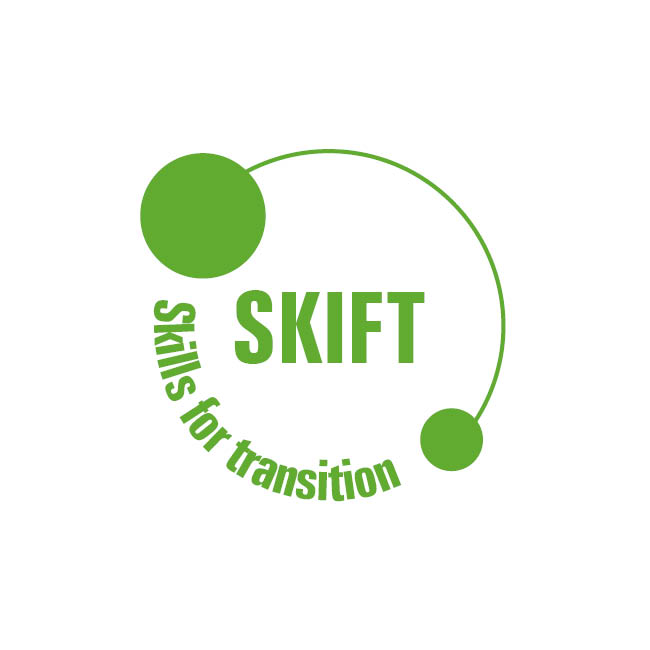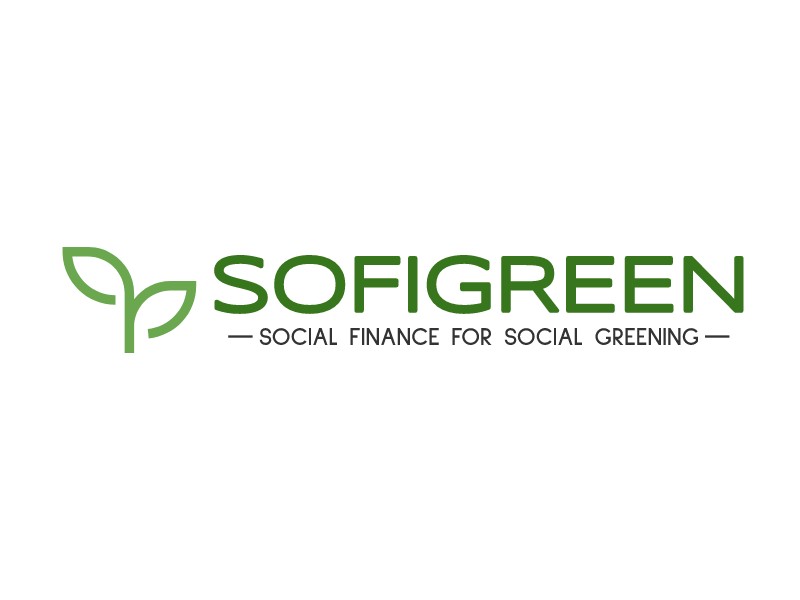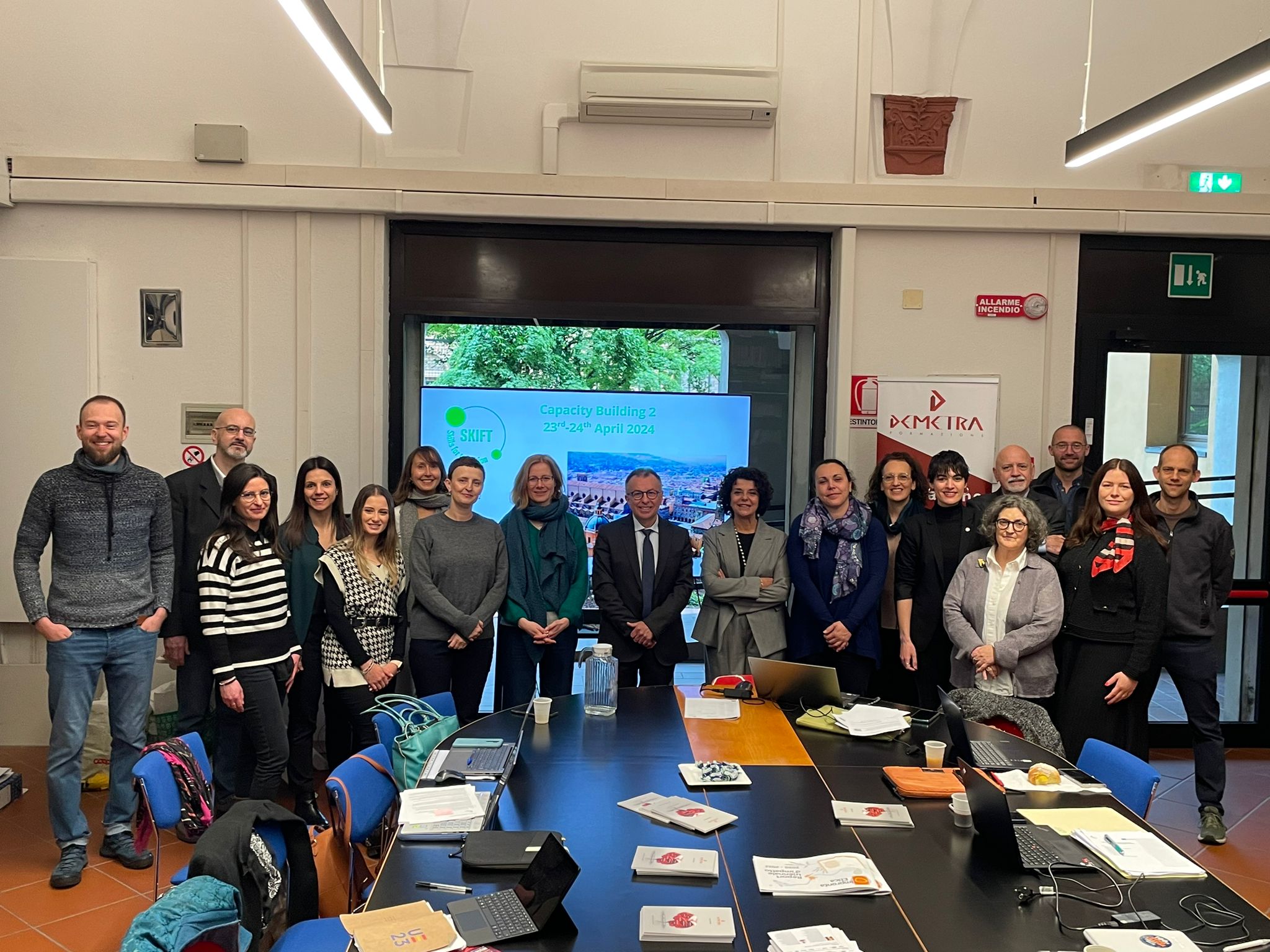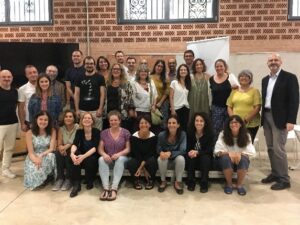
Community Energy Initiatives were the main topic of the first mission workshop of the European RESPONDET initiative. The event, organized by the Region of Catalunya in partnership with the Catalan Federation of Cooperatives and REVES on 13 and 14 September 2022 brought together local and regional authorities, social economy organisations, academics, civil society, renewable energy specialists and others interested persons from Catalunya, Wallonia region, Małopolska region and the municipality of Turin – a total of 56 participants.
The objective of the event was to provide an overview of Catalan legislation, policies and practices around social economy-based energy community initiatives, to confront the latter with experiences from other European regions and draw first conclusions for actions to be taken by partner regions when preparing local action plans promoting social economy-based green transition.
The event was opened by Josep Vidal, Director General for the Social and Solidarity Economy, the Third Sector and Cooperatives and Guillem Llorens, President of the Catalan Confederation of Cooperatives.
A short presentation of the general state of the art regarding the development of community energy initiatives in RESPONDET partner regions provided participants with a first impression on legal and policy frameworks, existing initiatives and their relation to the social economy as well as main challenges.
Konstantinos Stamatis, DG Energy, shared a closer insight into the EU policy framework, with recent EU legislation regarding Citizen Energy Communities (CEC)/Renewable Energy Communities (REC). Discussions with participants focused amongst others on possibilities of the European Commission to react on the lack of implementation by certain Member States of the relevant directives.
Roser Hernandez, Deputy Director General for the Social and Solidarity Economy of the Region of Catalunya, presented the Catalan legislative and policy framework. The latter include, for example, specific budget lines of the Catalan Energy Institute for the creation of renewable energy communities, but also measures stimulating cooperation in the field of renewable energy with the support of instruments such as the Ateneus Cooperatius.
Participants also had the opportunity to discuss with Catalan cooperatives or cooperative federations – among them agricultural cooperatives or housing cooperatives – about their (future) role in stimulating the creation of community energy initiatives.
Som Energia and Batec revealed, on one hand, the great potential for REC to spread and develop strong (national) networks, but also the important added value of REC in terms of tackling challenges such as energy poverty, promoting social cohesion, education, etc.
The world café format on day 2 provided participants with the occasion to exchange more in depth on main challenges and opportunities linked to a) Legislative and policy framework, b) Financing/Investment, c) Capacity-building and d) Governance/Citizen-involvement/Awareness-raising. The objective here was to identify possible actions to be taken – after discussion with local/regional stakeholders – by the regional/local governments involved in the RESPONDET project in the framework of local/regional action plans for green transition.
_____________________
Community Energy Initiatives in RESPONDET partner regions and elsewhere
- Mobilisation, experimention and capacity-building leading towards community energy initiatives – the example of BATEC
- RESCOOP’s cooperatives in Belgium have no difficulty in raising capital, what they lack is access to energy asset projects
- Magliano – launch of a local network for the collective and democratic production of energy
- Messina: Solidarity-based renewable energy community as an outcome of urban regneration
Upcoming RESPONDET activities and events
____________________
Community Energy Initiatives in RESPONDET partner regions and elsewhere
_____________________________________________________________________
Mobilisation, experimentation and capacity-building leading towards community energy initiatives – the example of BATEC

BATEC is a socio-economic inter-cooperation project bringing together cooperative and associative entities. It works from Barcelona to be a reference in energy transition towards a sustainable, fair and democratic model promoted from the field of Social and Solidarity-based Economy.
It has the aim to contribute to the development of a sustainable energy model that is based on respect for the environment, social justice and economic democracy. Main objectives are the decrease and reduction of demand in the first place, and, subsequently, the contribution of distributed renewable energies with local management and participation that bring energy sovereignty.
Batec activities include the accompaniment of community energy initiatives and communities of resources, Innovation Labs, Observatories and sectorial articulation projects. Currently, BATEC leads a number of projects that work for a change of energy model such as the creation of a local community energy in Barcelona (CEL Bordeta) or rural community energy models all over Catalonia.
Find out more: https://batec.coop/
RESCOOP’s cooperatives in Belgium have no difficulty in raising capital, what they lack is access to energy asset projects

Image: renouvelle.be
Considering that offshore wind is one of the most promising ways to increase renewable energy production in Belgium, REScoop-Wallonie and REScoop-Vlaanderen have been running an “Offshore” project. Its purpose is to study and offer maximum chances to their cooperatives to participate in future calls for wind farms concession in the North Sea.
Offshore sector is mainly in the hands of private conglomerates. A tiny portion of citizens has been able to participate, and only through indirect financial participation, without having the slightest ability to influence the governance of these structures.
The initiative has led to the creation of the SeaCoop cooperative by 33 Belgian REScoops on 15 January 2022. This cooperative intends to participate in a consortium that will bid for the offshore concession in 2024. Seacoop is aiming for a 20% equity participation in future wind farms and will supply its cooperators with the energy produced through cooperative suppliers.
Citizens will be involved in the project by joining SEaCoop’s member cooperatives at a local level.
Currently, the tender framework is being designed with references to Renewable Energy Communities, allowing citizen participation to play an important role in the tender award process.
For more information: www.seacoop.be
Magliano – launch of a local network for the collective and democratic production of energy
Image: greenme.it
The Municipality of Magliano Alpi, with about 2100 inhabitants, has launched a local network for the collective and democratic production of energy through the use of renewable sources, combining attention to the environment, citizens’ active involvement, care for the territory and economic savings.
This is the first example of a renewable energy community in Italy. The project is spreading fast inside Magliano’s Community and more and more citizens are asking to take part in it.
The City has installed photovoltaic panels directly on the roof of the municipal center, producing energy that is shared with the other members (families and local economic entities).
The Community has been supported by the Energy Center of the Politecnico di Torino, with which a path to enable citizens to implement the new shared energy resource management model was defined.
For more information: https://cermaglianoalpi.it/
Messina: Solidarity-based renewable energy community as an outcome of urban regeneration

Image: fdcmessina.org
The Solidarity-based Renewable Energy Community Fondo Saccà is an outcome of a complex urban regeneration programme targeting the Fondo Saccà slum, built in the city of Messina after the 1908 earthquake. Here people live in a highly deprived context, from a social, economic, environmental, health-wise and cultural point of view.
The urban regeneration programme has been coordinated by the Municipality of Messina, in collaboration with the Messina Community Foundation (FCM). Part of the slum was dismantled and a green building, to house disadvantaged people and community services, as well as a public park, were created.
FCM has developed a specific “Solidarity-based Renewable Energy Community” (SREC), based on an innovative combination of technical and social solutions: the building units can work on an island-mode (off-grid) and it is possible to monitor energy consumption of individual residential users, manage the energy produced from photovoltaic plants through the battery storage system and implement an energy redistribution procedure taking into account the social priorities of users.
By combining these solutions, the SREC model can respond to social issues, above all energy poverty, as well as activate important economic and environmental impacts for the area. It can also be replicated in other contexts.
Formally, the SREC in Fondo Saccà is an association bringing together FCM (owner of the building) and the 4 hosted families.
The initiative has also been presented in the framework of the Social Economy Mission project “GRAPE”, co-funded by the European Union, in which smaller (and partially remote) municipalities meet to exchange on social economy-based green transition.
More information on the SREC: https://fdcmessina.org/transizione-energetica/
More information on GRAPE: https://fdcmessina.org/grape-local-social-green-resilience-action-plans-for-small-and-peripheral-territories/
Upcoming RESPONDET activities and events
Second RESPONDET mission workshop on circular economy

Image: Ville de Namur
RESPONDET partners will meet again on 18 and 19 October 2022 in Namur (Belgium). This time, they will have a closer look at social economy-driven initiatives in the circular economy and possibilities for regions to support their development and replication.
The rich programme of the workshop includes exchange with regional policy-makers, public administration and social economy organisations, study visits as well as interactive discussions between the partners and local stakeholders from the four partner regions on possible actions to take at regional level in cooperation with local communities and the social economy.
![]()
Views and opinions expressed in this newsletter are those of the author(s) only and do not necessarily reflect those of the European Union or EISMEA. Neither the European Union nor EISMEA can be held responsible for them.
Read More
European Elections: Help us mobilising (future) MEPs to keep social economy on the EU policy agenda
The European elections are approaching. Their outcome will decide on the direction the EU will…
REVES Annual Meeting 2024: Focus on inter-cooperation between different (social economy) actors and municipalities
REVES Annual Meeting 2024: Focus on inter-cooperation between different (social economy) actors and municipalities REVES…
OPEN CALL: POSSIBILITY FOR MICRO&SMALL SE ENTERPRISES TO RECEIVE FREE ADVISE AND COACHING ON GREEN TRANSITION-RELATED TOPICS
The SKI.F.T call for proposals is now open! Micro and small social economy enterprises…
GREENING OPPORTUNITY FOR SEEs
the SOFIGREEN call for proposal for SEEs operating in France, Italy and Spain is now…
 Docs
Docs  Support
Support 


